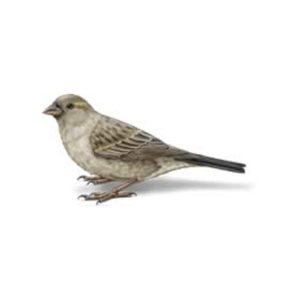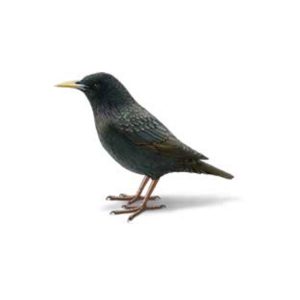Identify Pigeons in Georgia
Pigeons, commonly known as feral pigeons, are a year-round pest found throughout Georgia and the rest of the United States. These birds are highly adaptable and thrive in man-made environments. You can identify pigeons by their plump bodies, short necks, and small heads. They typically have a bluish-gray color, with two black bars on each wing. Pigeons are notorious for their cooing sounds and their ability to flock in large numbers, especially in urban areas where they find ample food and shelter.
Where in Georgia Do Pigeons Live?
In Georgia, pigeons are found in both urban and rural areas, thriving particularly in cities and towns where human activity provides food, water, and nesting sites. Common places where pigeons nest include; window ledges, roofs, air conditioning units, traffic lights, commercial signs and under bridges.
In rural areas, pigeons may roost on or near large, rocky cliffs, mirroring their natural habitats. Although they prefer grain and seed, pigeons consume garbage, insects, bread, and other handouts from people. Wherever they nest, food and water are often in plentiful supply, but when it isn’t, the birds seek resources from nearby rural or undeveloped areas that are generally within their flight range.
How Common Are Pigeons in Georgia?
Pigeons are extremely common in Georgia. Their ability to breed year-round, with peak mating seasons in spring and fall, contributes to their large populations. The abundance of suitable nesting and roosting sites, coupled with readily available food sources in urban environments, ensures that pigeon populations remain stable and often grow. This prevalence makes pigeons one of the most troublesome bird pests for homeowners and businesses alike.
Do Pigeons Carry Disease?
Yes, pigeons are known carriers of several diseases, posing significant health risks to humans. The serious and constant public health problems feral pigeons create are unmatched by any other bird species. Pigeons are known to carry or transmit several diseases and their droppings and feathers can contaminate food destined for human consumption. Their droppings deface and accelerate the deterioration of homes and buildings and also contaminate areas where people walk or work. Pigeon droppings and nests clog gutter downspouts and air intakes, mar window sills, and render fireplaces and fire escapes hazardous. Pigeon ectoparasites include chewing lice, ticks, and mites, some of which bite people, which is why control of this common urban pest should always be a priority. If you discover pigeons roosting on your property, contact a professional bird control company immediately to discuss a proper course of pigeon control.
FAQ’s
Are Pigeons Protected in Georgia?
No, feral pigeons are not protected in Georgia. Property owners have the legal right to control and exclude these birds from their premises. However, it is advisable to use humane methods, often best implemented by professional pest control services, to ensure both effectiveness and compliance with local regulations – that’s where Active Pest Control can help!
What Attracts Pigeons to Your Yard?
Pigeons are attracted to yards primarily by food sources, such as grains, seeds, bread, garbage, bird feeders, and pet food left outside. Water sources like bird baths, ponds, and pet water bowls also draw pigeons. Additionally, pigeons seek shelter in structures like roofs, eaves, attics, and ledges. Regular bird feeding by homeowners or neighbors can further encourage pigeons to frequent the area.
What To Do When You See a Pigeon?
When you see a pigeon on your property, it is important not to feed it, as this will encourage the bird to stay and may attract more pigeons. Remove any potential food and water sources by securing trash bins, pet food, and taking down bird feeders if necessary. Implement deterrents such as bird spikes, netting, or reflective objects to make roosting and nesting sites less appealing. Keep your property clean and free from clutter to avoid providing shelter. If pigeons become a persistent problem, contact our expert bird control team to assess the situation and implement effective exclusion techniques.
Need help with pest control?
Ready for your FREE quote?
Fill out the form below and we’ll be in touch!
*During normal business hours. After hours inquiries will be returned the next business day.



